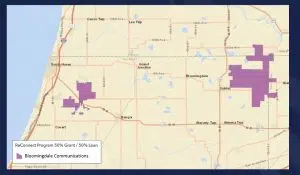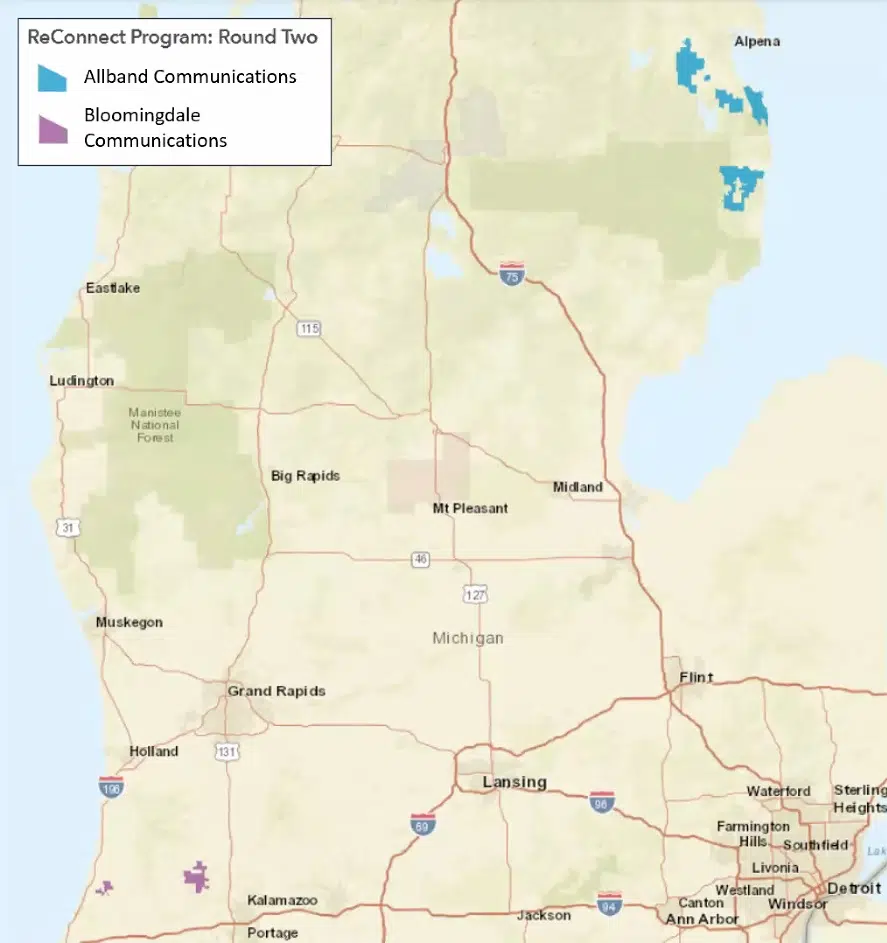UNDATED, MI (WKZO AM/FM) — Wednesday, the United States Department of Agriculture (USDA) announced a $10.1 million investment into high-speed broadband internet for multiple parts of Michigan, including the southwest and northeast regions.
The investment comes by way of a grant from the ReConnect Program, which is currently paying out its second round of broadband investments.
During a press conference over Zoom, U.S. Secretary of Agriculture Sonny Perdue explained the investment and the need for high-speed internet in those areas.
“I think COVID has shown us the importance of this connectivity,” Perdue said. “It’s not a luxury any longer, it’s a necessity. From distance learning and COVID-19 and telehealth, all those kind of things, as well as precision agriculture, so it’s really important that we do this. USDA is very proud of the President’s direction to try to connect rural America. Our folks in rural America need the same kind of services as those elsewhere, and that’s what this program is all about.”
State officials, such as Congressman Fred Upton, were on the Zoom conference to help elaborate on the details of the plan.
“Much of my district is underserved,” Upton said. “But being able to partner with companies like Bloomingdale, which is where this is going to go, nearly $7 million is going to connect a lot of homes, and it’s going to connect a lot of businesses as well.”
Upton also noted the broadband internet will help with telehealth conferences amid the COVID-19 pandemic.

Map of new high-speed broadband internet investment areas in Southwest Michigan. (Photo courtesy of USDA via Zoom conference).
“With the number of increasing COVID cases, [hospitals are] doing a lot of teleconferencing,” Upton said. “Not only with their physicians, but also with their patients. But if they’re not connected, they don’t get a service. But you have made this a priority. I’m glad we’re working with, in this case, Bloomington Communications, a company I’ve known for 20-some years, making real advancements to make sure people have that broadband capability.”
As far as southwest Michigan goes, Bloomingdale Communications will use a $3.3 million ReConnect grant and a $3.3 million ReConnect loan to deploy a fiber-to-the-premises network throughout Van Buren, Kalamazoo and Allegan counties.
As a result, the USDA says 3,203 people, 40 farms and 27 businesses will be connected to high-speed broadband internet in those areas.
Following statements from Upton, Congressman Jack Bergman joined the call to explain the investments in northeast Michigan.
“With this award announcement, we’re going to be increasing the connectivity in a couple of my rural counties, and in some cases, I would say remote,” Bergman said. “These ReConnect funds are really targeted, deservedly so, to the underserved areas of remote parts of all of our states. Northern Michigan is just that.”
Bergman reiterated that the need for such measures has been underscored by the COVID-19 pandemic.
“COVID set the standard for what we need going forward for connectivity at home,” Bergman said. “Whether it be to be able to work from home, or do to your schoolwork from home, or probably most importantly for us in Northern Michigan, the advancement in telehealth that has been overdue. Because of COVID, we’ve had a chance now to institute telehealth, and it’s being accepted. Not only from the people that are getting the healthcare, but also from the providers that are giving it, because we’re getting the quality healthcare that we need.”
Bergman added that, while there is more work to be done, this is a huge step in connecting those areas.
“When you think of the late 1930’s when the United States Government brought electricity to rural America, this is that 21st century step when it comes to that connectivity,” Bergman said. “I’m proud to be supporting the program.”
In northeast Michigan, broadband will be invested in Alpena, Alcona and Iosco counties. Allband Multimedia LLC will use a $3.5 million ReConnect grant to deploy a fixed wireless network to connect 3,678 people, 64 farms, 54 businesses, four educational facilities and a post office through those areas.
More information about the ReConnect program can be found by visiting the USDA’s ReConnect page at this link.







